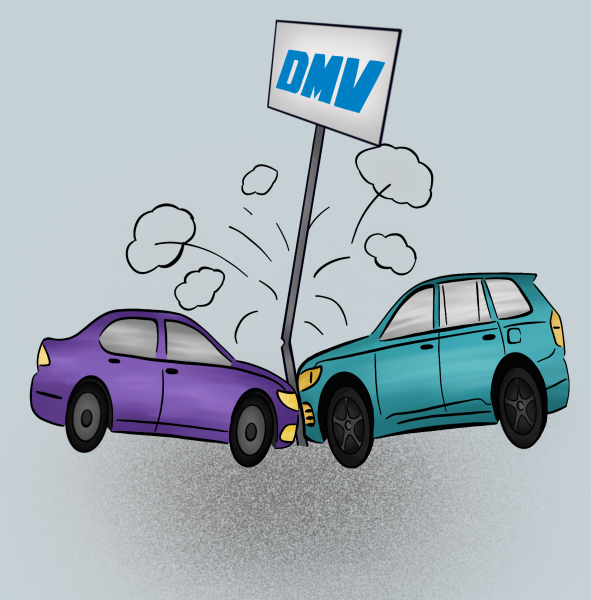Admission Scandal: Only Losers Play by Rules
March 22, 2019
The FBI recently uncovered the largest college admissions scandal to date, incriminating a circle of 50 individuals who played a role in $25 million worth of bribery and fraud that has humbled institutions of higher education enough to provide a rare moment of self-reflection.
The scandal that broke on March 12, detailing the actions of a handful of wealthy parents paying a consultant thousands of dollars to secure their children spots in the nation’s most elite colleges, is twofold. From SAT score-fixing to invented sports recruits, schools including Yale, USC, Stanford, UCLA, and Wake Forest are caught in the middle.
What is most troubling is at the core of what makes college admissions an inherently “un-level” playing field. Because what exposed these now-indicted individuals in the 1st place and brought them to the attention of the FBI was not the amount of money they were willing to shell out for a spot in a top college, but how they did it.
It is perfectly legal for wealth and privilege to secure consideration in admissions through donations behind closed doors.
While the FBI investigation attempts to rectify the damage done to college admissions, it has only made it more apparent that the more silent form of corruption— the heftier, more substantial monetary donations that provide for the building of libraries and ensure legacies —will continue to remain unchecked.
The ringleader of the college admissions scandal, Rick Singer, abused this fact to great effect: instead of using individual merit these children evidently lacked, or the expensive legal donation of a building to secure consideration, he had parents shell out tens to hundreds of thousands of dollars for a cheaper but illegal way into top colleges.
Singer’s scam only worked in the 1st place because college admissions are already, on so many levels, broken. Children of alumni are often granted a leg up to secure legacy status, guaranteeing generations of steady cash flow. Athletic recruits are often admitted with grades and test scores decidedly below the average admitted student, securing recognition and reputation for a school via its gifted sports teams, and nonetheless exposing how susceptible admissions are to double standards.
Though these individuals admitted for reasons beyond their own merit are capable of positively contributing to their college campuses, succeeding in school, and more, what matters most in terms of admissions is not necessarily what happens post-admittance, it’s the fact that external factors so heavily influenced the admittance in the 1st place.
It is crushing, especially in the season of college rejection letters, to be reminded that academic excellence is insufficient— while money is the golden ticket.
These ways of securing a spot in a prestigious university, while certainly not the same, undeniably make the applications process both more unexpected and unfair to applicants aiming to be admitted on the grounds of their merit, accomplishments, intellectual drive, and character. Yet in practice, they rarely garner as much public outcry as attempts to level the playing field of college admissions, like race-based affirmative action.
Ultimately, higher education is a business. It depends upon steady cash flow, spends millions on advertising education as a lifestyle, a product, a status symbol deemed necessary to get by in today’s world. And given that they are a business, the wealthiest get to play their game— often without strings attached.
And can colleges truly be as “need-blind” as they purport to be with this fact standing as a given? With more students belonging to the top 1% of families than the bottom 60% at top schools like Princeton, Dartmouth, and Yale, according to an analysis from the New York Times, how is anyone supposed to buy into claims of increased equity in higher education?
Why and how are we able to come to terms with elitism selectively rather than holistically?
As a current high school senior in the middle of a wave of college acceptances, waitlist offers, and inevitable rejections, it’s difficult not to think of the sheer lunacy that factors into even the most average of college admissions— the odds are already so heavily stacked against even the most high-performing of students. To factor in fraud and bribery narrows the margin of plausible admittance into a competitive school to nothing.
Those caught in the midst of the current scandal may just be the tip of the iceberg— the decay at the root of admissions must obviously go beyond just 50 individuals —but their actions encompass what frustrates so many about the inequality associated with getting an education. It also exposes a bitter truth, that those who play by the rules don’t often win.
We’re witnessing a rare moment in which this truth is slowly being chipped away. And hopefully the collective anger and drive at the brokenness of an inherently faulty system will propel a wave of change that exposes the vast, inextricably connected network of inequalities that work to rig the system in favor of those who need the least assistance.



